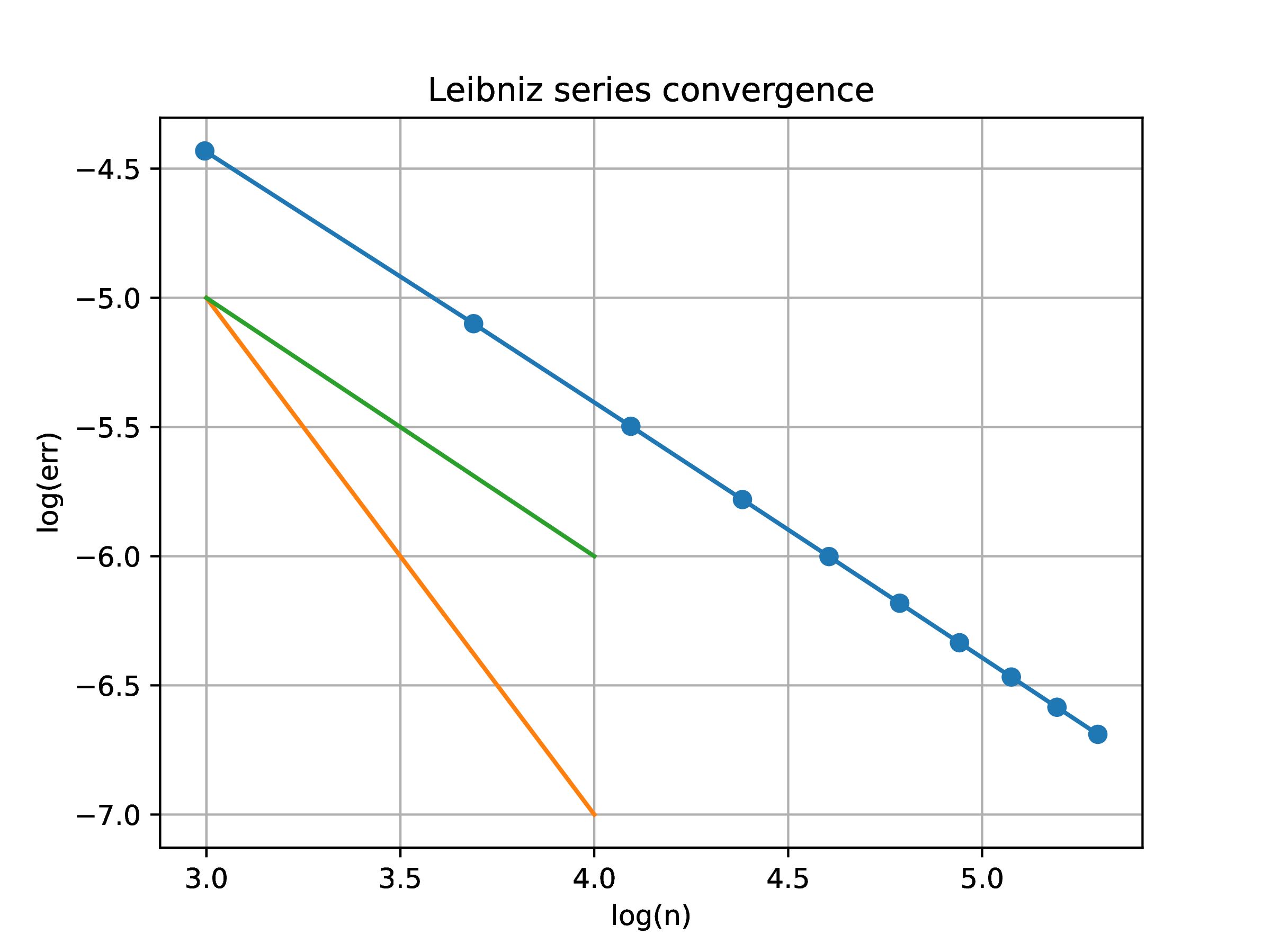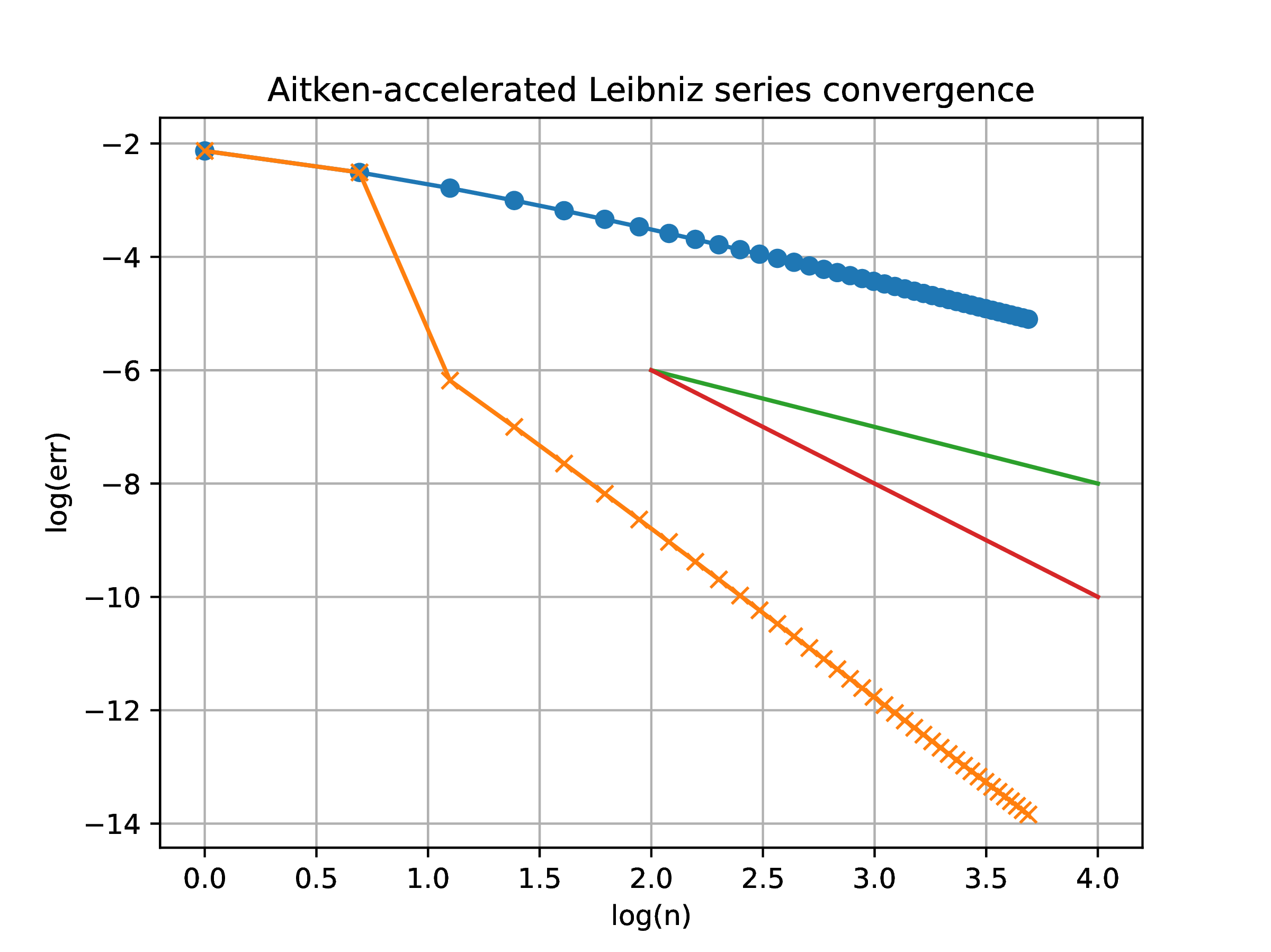Construct a convergence plot in logarithmic coordinates of the Stern continued fraction
Identify the terms in the general expression of a continued fraction
Compare with the additive approximation of the Leibniz series
Estimate the rate and order of convergence for both approximations.
Solution. (Extend the figure template below of the Leibniz approximation of to include the Stern continued fraction)
Apply convergence acceleration to both the above approximations involving . Construct the convergence plot of the accelerated sequences, and estimate the new rate and order of convergence.
Solution. (Again, feel free to modify the template below. Be careful: the Aitken formulas are valid for accelerating linear convergence. You must identify the appropriate order of convergence in Q1.)
Completely state the mathematical problem of taking the root of a positive real, . Find the absolute and relative condition numbers.
Solution.
Completely state the mathematical problem of finding the roots of the cubic polynomial , using the Cardano [2] formula. Find the absolute and relative condition numbers.
Solution.
Completely state the mathematical problem of solving the initial value problem for an ordinary differential equation of first order. Use Lyapunov exponents [1] to find the absolute condition number.
Solution.

